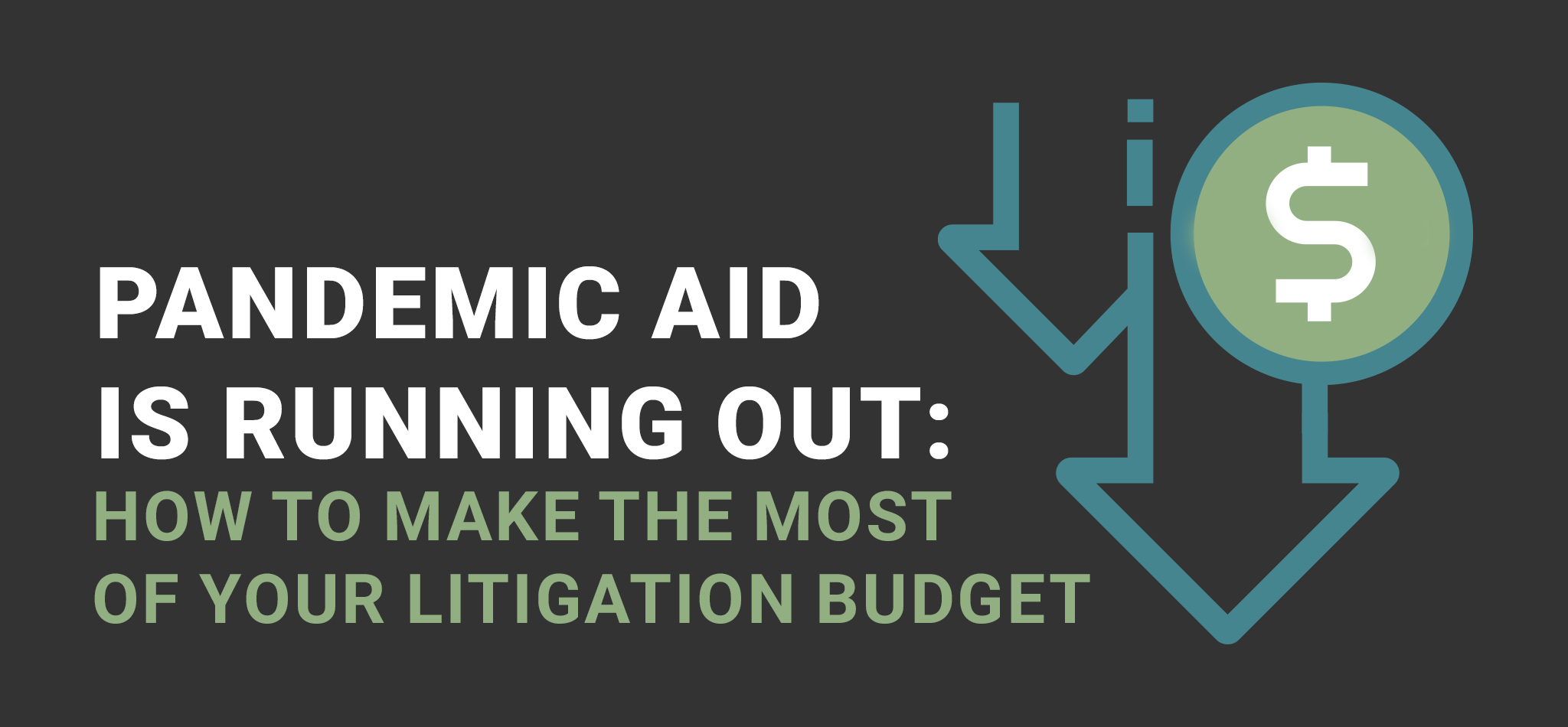Pandemic Aid is Running Out: How to Make the Most of Your Litigation Budget

Safety-net hospitals kept afloat by billions in federal COVID-19 relief aid are set to lose a major lifeline as those funds run out and Congress remains at an impasse over new funding.
Early in the COVID-19 pandemic, Congress provided $175 billion in subsidies to healthcare providers through the Coronavirus Aid, Relief, and Economic Security (CARES) Act, the Paycheck Protection Program, and Health Care Enhancement Act. Congress approved additional funding last year through the American Rescue Plan Act, including $6 billion for community health centers.
The political will to provide more support appears to be flagging, however, as Congress has yet to approve more funding for healthcare providers.
Disagreements over how much aid, and to whom it should be given, largely fall along partisan lines. While the White House and Senate Democrats have argued that more funding is needed, Senate Republicans assert the pandemic has entered a new, endemic phase and no longer requires significant funding.
In March, the White House sought a $22.5 billion aid package, a figure that was reduced to $16 billion before talks fell through, the Washington Post reported.
Senate negotiators next reached a $10 billion deal boasting bipartisan support, but without broader Republican support, the bill has remained in limbo.
Congress’s failure to pass new aid has officials at safety-net hospitals like Nashville General Hospital in Nashville, Tennessee, concerned. The New York Times recently reported on how pandemic relief has helped the hospital, which predominantly serves low-income and uninsured populations, stay open during the pandemic.
Federal aid is ending at a particularly fraught time: just as safety-net hospitals are beginning to address the impacts of delayed care during the pandemic. The hospital’s doctors say they are seeing a surge in patients with more complicated issues stemming from delayed care, missed screenings and stretching out medications like insulin.
Nashville General Hospital’s story isn’t unique among healthcare providers. A recent study released by the JAMA Health Forum showed that federal COVID-19 relief effectively offset hospitals’ operational losses during the pandemic, especially government-run, rural and smaller hospitals.
For hospitals that have relied on COVID-19 funding to get by, the loss is likely to be especially acute. The financial pressures associated with the loss of federal aid, coupled with existing trends like the rise in medical malpractice claims against healthcare organizations and rising claim values, will require healthcare organizations to contain their costs and maximize their legal budgets.
Hospitals, health systems and other healthcare organizations may begin exploring partnerships with outside vendors as a way to expand their in-house capacity to respond to litigation and better align their often-siloed legal, quality assurance, and risk management initiatives.
If your organization is considering a partnership to support litigation readiness, consider one with in-depth experience working directly with healthcare providers to broaden internal capacity for medical-legal case investigation, determine the level of exposure based on merit, and facilitate a roadmap towards prompt resolution of claims. It can be especially helpful to engage with a group that has worked extensively in the analysis of medically complex cases, patient safety events, surgical and perinatal care outcomes, and identifying failures in systems and processes.
When exploring potential partnerships, ensure your vendor not only has the medical expertise you need but also provides the right approach to achieving optimal outcomes.
Med Law’s Approach
When partnering with healthcare organizations, Med Law works in alignment with the full team to ensure they receive the highest return from their litigation expenditures. As experienced vendor-partners, the Med Law’s approach is to deliver early claim assessment and valuation, giving in-house legal teams breathing room to tackle high-level strategy. With this approach, when organizations engage outside counsel, they are given a head start by the early work completed by Med Law, including receiving indexed medical records and reports, an initial opinion regarding liability, and areas of focus. This approach also offers partners an opportunity to contain litigation costs so that they can have predictable, controlled budgets and expenses.
Beyond litigation readiness, healthcare organizations may want to take a proactive approach to identify areas of concern via outside resources. In cases like this, Med Law’s consulting nurse experts partner with organizations to proactively identify and respond to areas of concern and integrate insights with their quality and patient safety agenda.
Our executive consulting team has the expertise to capture vital information derived from extensive data collection, discern trends, identify system defects, and advise strategic options.
Contact us for more information on how Med Law can help broaden your internal capacity to respond to litigation.